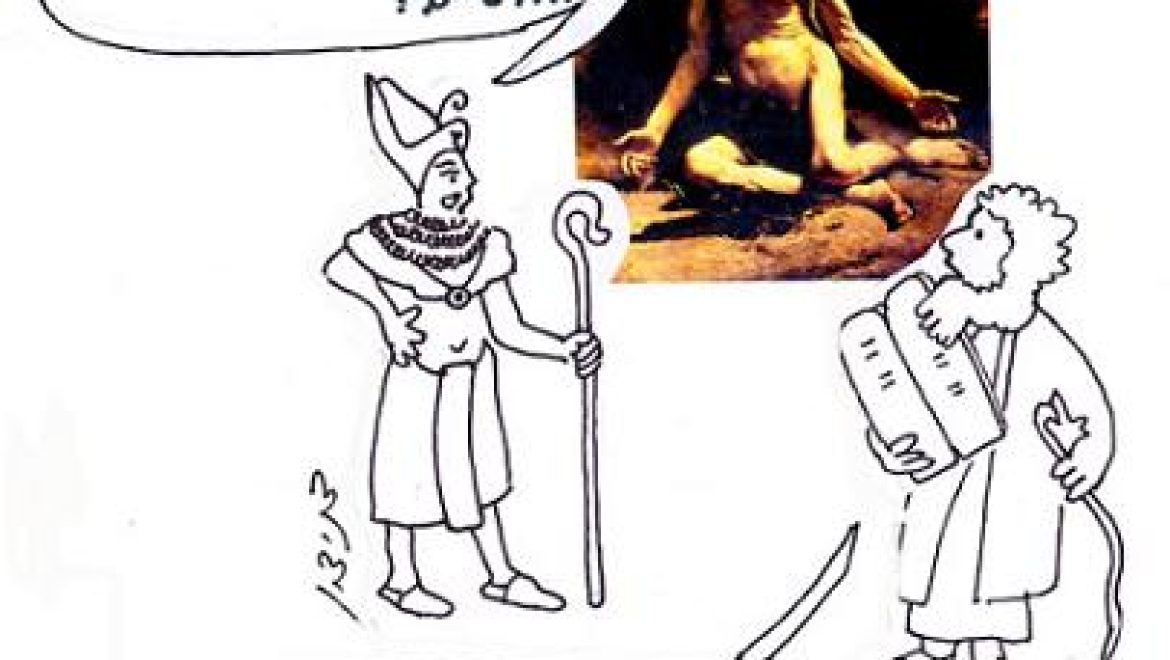
According to the early sages our teacher Moses wrote the Book of Job. This opinion is in accord with the opinion which states that Job lived in Moses’ era. How do we know that Job lived in the era of Moses? From the word eiphoh which is found in relation to both Job and to Moses.
In Job it is written, “Oh that (eiphoh) my words were now written! oh that they were printed in a book” (Job 19:23), and of Moses it is written, “For wherein (eiphoh) shall it be known” (Exodus 33:16). The scholars asked: If we learn from the word eiphoh about the era in which Job lived, and that word is also used in relation to Isaac, Jacob, and Joseph, then maybe Job lived in one of their eras. Answer: Of Job it is written “printed (yuchaku in a book,” and only Moses, of those mentioned, was a legislator (m’chokek, from the same root). According to a different sage, Rava, Job lived in the era of the spies. How did he know that? From a word used in relation to both Job and to the spies. It is said of Job, “There was a man in the land of Utz and his name was Job” (Job 1:1). Of the spies it is said “whether there be a tree (etz)” (Numbers 13:20. The scholars asked: Are they not different words, Utz and etz? The sage answered them that the verse related to the spies is to be interpreted to mean “is there a man who lives as long a life as a tree and who guards the people of his generation like a tree?” This person was Job.
One of the scholars argued: Job never lived and never existed; he was merely a parable. His teacher answered him: The Scriptures state explicitly “There was a man in the land of Utz and his name was Job,” meaning that such a person existed. The scholar answered: In the story of the poor man’s lamb, which Nathan the prophet told David after David’s sin with Bat Sheba, it is also written, “And the poor man had nothing but one small lamb which he had bought” (II Samuel 12:3). This was merely a parable, and so, too, the story of Job is a parable. His teacher told him: If so, if the story of Job is merely parable, why did the Scriptures take the trouble to give us his name and the name of his town?
According to a different sage, Job was one of those who returned to Zion (6th century BCE) and he founded a study hall in Tiberias. The scholars asked: Did not the early sages say that Job lived from the time Israel went into Egypt until they left? This means that Job lived in the era of the Exodus and not in the era of the return to Zion.
The sage answered that the earlier sages gave an era merely to estimate the years of his life, not to note the period in which those years were lived. The scholars went on to ask: according to the sage who said that Job was one of those who returned to Zion, he was a Jew. But the early sages noted that Job was one of the gentile prophets, meaning that he was a gentile. Answer: Job was a Jew, but his prophecy was to the gentiles. The scholars continued with their questioning: the early sages specifically stated that ‘Job was a righteous gentile,” meaning that he was not a Jew. Answer: True, there is a disagreement between the early sages about whether Job was a Jew or a gentile.
(Babylonian Talmud, Tractate Bava Batra 15a)
